More than 500 job vacancies for refugees and residents in 11 Ukrainian municipalities. A brand-new emergency employment program implemented by the PCPM Foundation
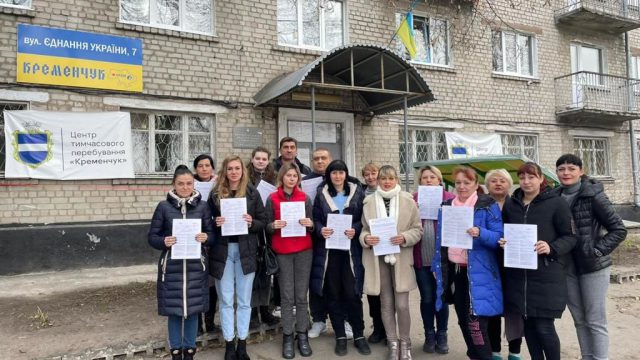
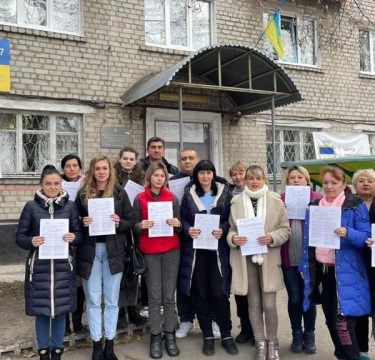
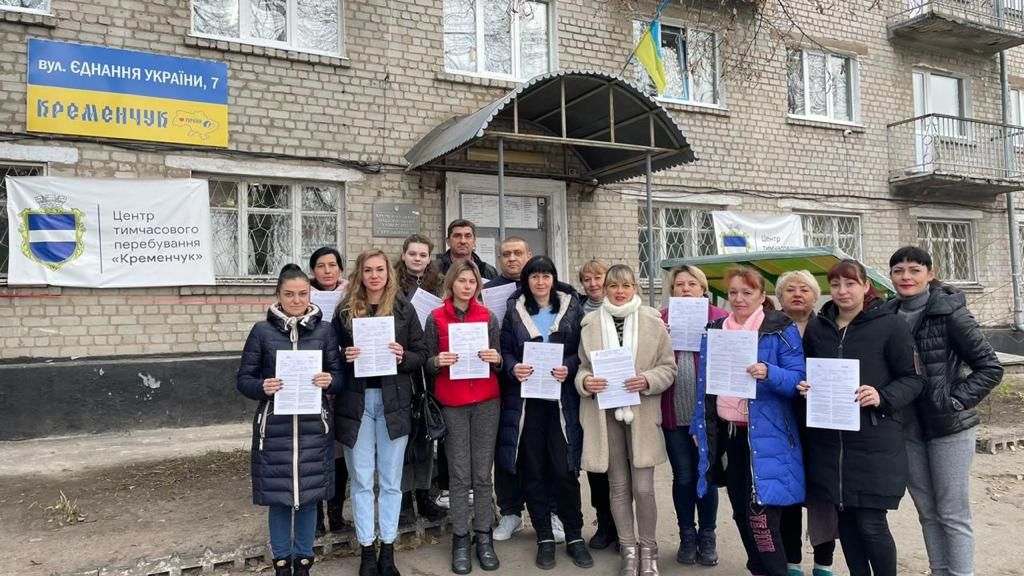
Anton sweeps park leaves in the alley, Olga puts fresh paint on the walls of the municipality refugee center, and Viktoria mixes a mushroom goulash using a huge ladle. Everybody found their jobs thanks to the Polish Center for International Aid (PCPM), which has employed over five hundred people in Ukrainian municipalities. These are both people who escaped from the war zone and the unemployed from other cities and municipalities, which had taken in their fellow citizens from the East.
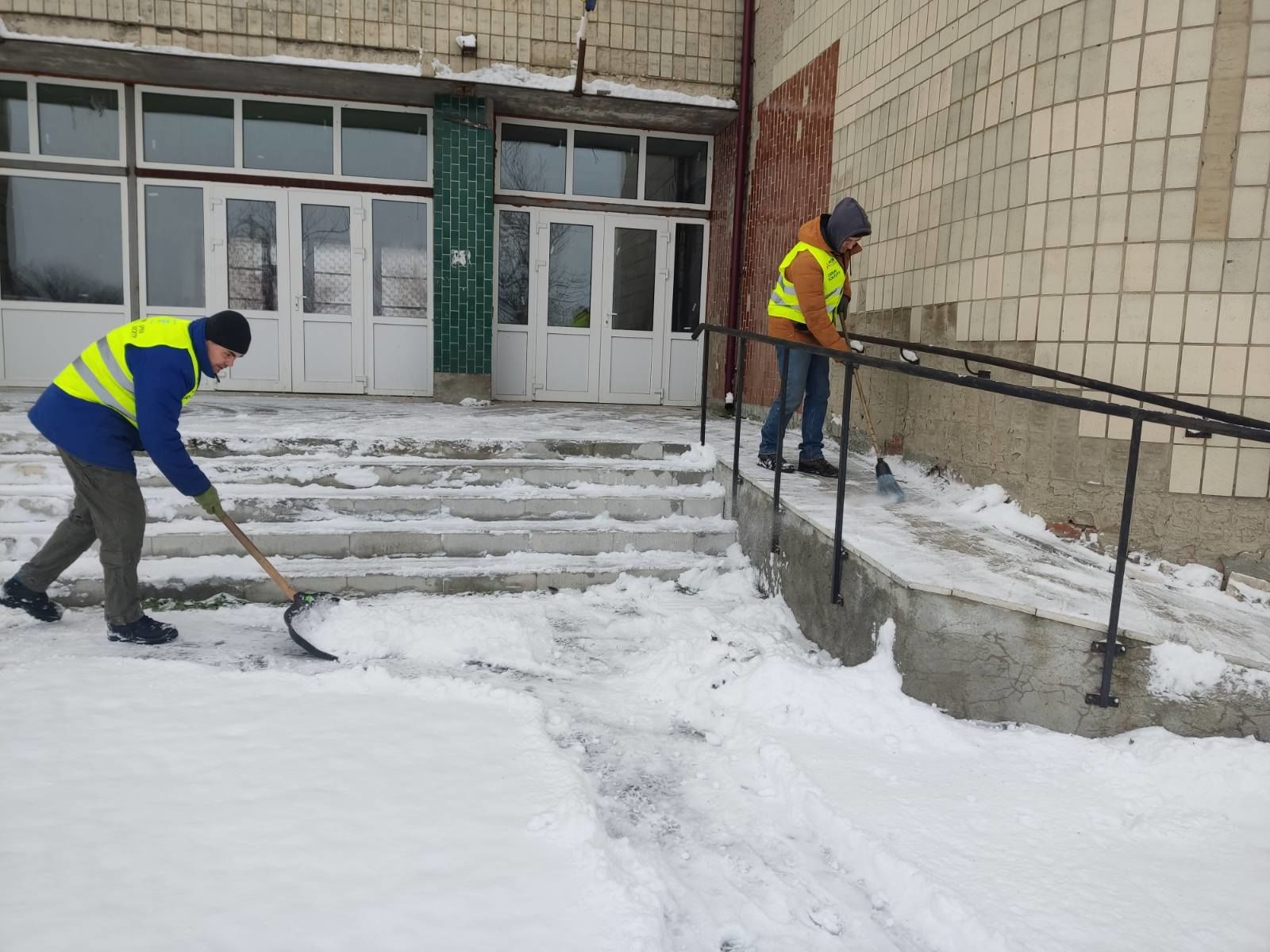 ‘In the most dangerous regions of Ukraine, where war refugees are, it is extremely difficult to find employment. The refugee and local populations face similar unfortunate circumstances. There are situations in smaller municipalities where the population rate has risen up by 90 per cent’ – said Michal Kulpinski – the PCPM Ukrainian Project Officer. ‘What is crucial – he adds – is that the Foundation’s program gives jobs to not only the displaced persons but also local residents. This prevents any kind of conflict’ – Kulpinski summed up. As he points out it’s the exact opposite, the program unites the local and refugee societies. ‘The residents know the refugees work for the city that hosts them. Those people take care of sidewalks, parks, and other public institutions’ – he highlighted.
‘In the most dangerous regions of Ukraine, where war refugees are, it is extremely difficult to find employment. The refugee and local populations face similar unfortunate circumstances. There are situations in smaller municipalities where the population rate has risen up by 90 per cent’ – said Michal Kulpinski – the PCPM Ukrainian Project Officer. ‘What is crucial – he adds – is that the Foundation’s program gives jobs to not only the displaced persons but also local residents. This prevents any kind of conflict’ – Kulpinski summed up. As he points out it’s the exact opposite, the program unites the local and refugee societies. ‘The residents know the refugees work for the city that hosts them. Those people take care of sidewalks, parks, and other public institutions’ – he highlighted.
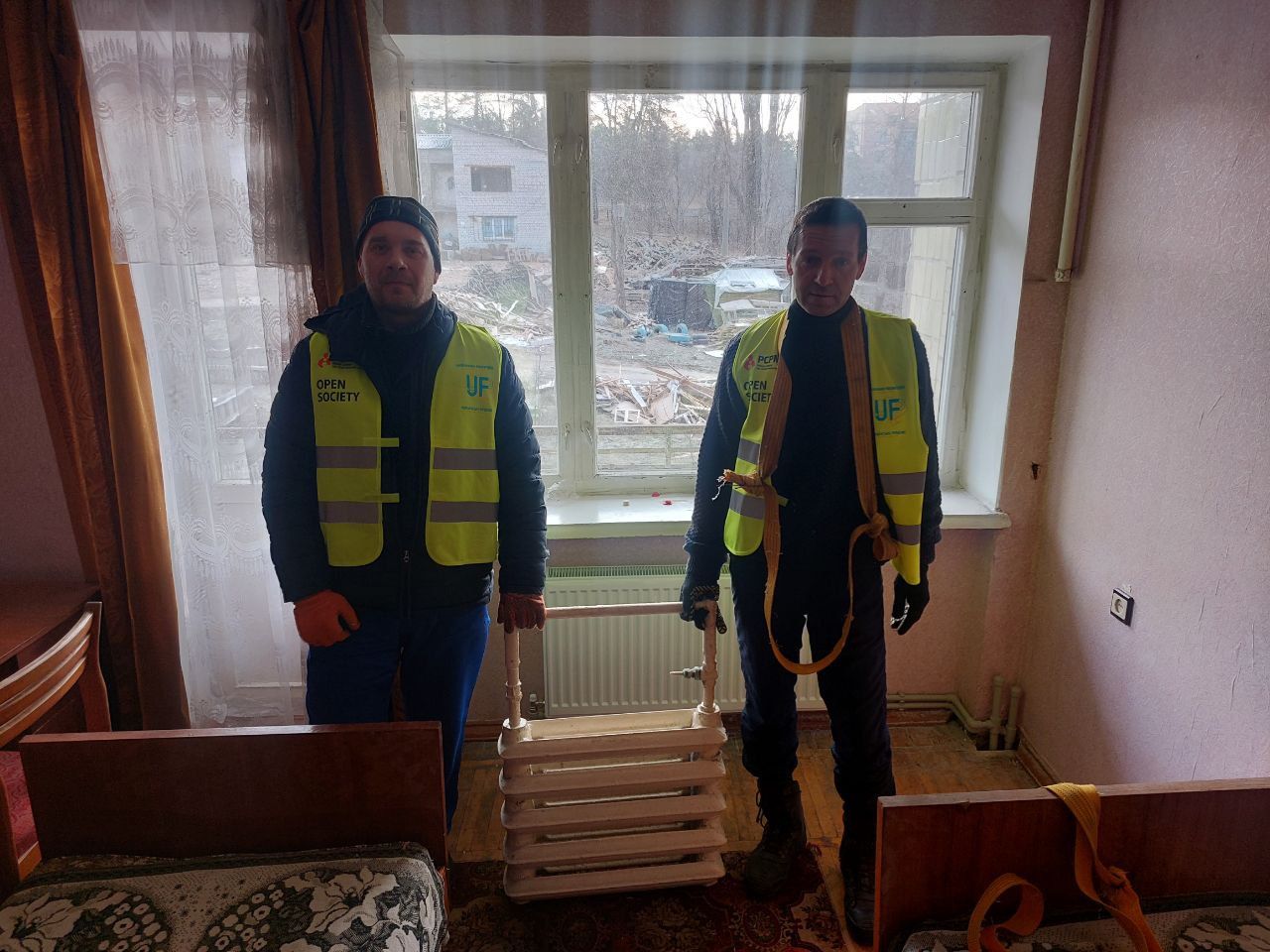
The employees are not only taking care of their towns but also of one another. For many refugees, temporary homes are municipal buildings which had not been used for years. As part of the work commissioned by town halls, the newcomers are adapting the building for living themselves. Replacing and sealing windows or doors, plumbing repairs in toilets, at radiators, or any other minor repairs – these are just some of the tasks done by the people employed in the PCPM ‘Cash for Work’ program.
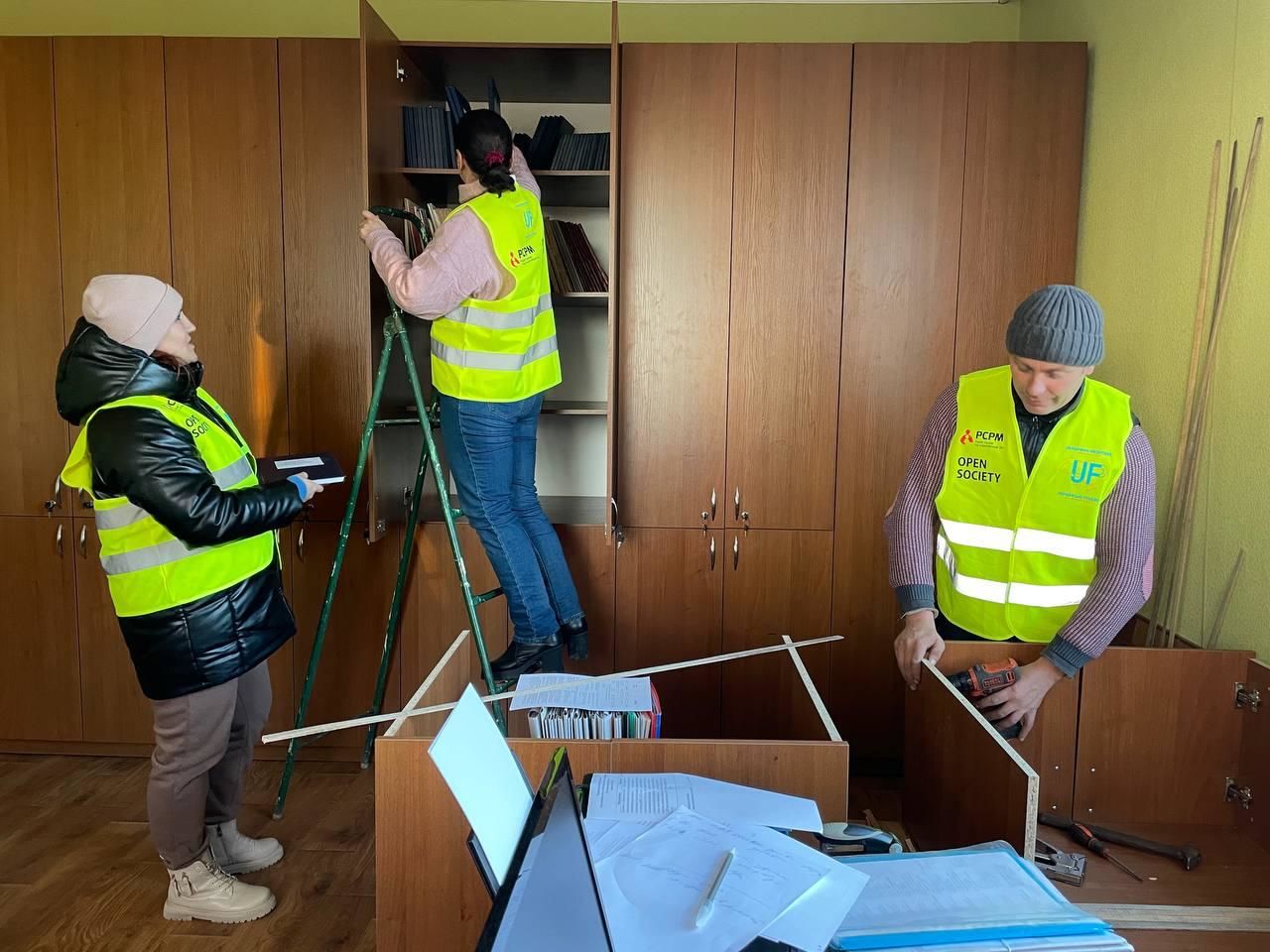
The city of Poltava has employed most of the refugees in the Foundation’s project. New employees begin their day in Poltava University’s botanical garden, where the local coordinator dedicates their tasks. ‘We generated 120 job opportunities in the city. For example, they do jobs at the local university and the local police department – said Kulpinski. ‘The employees do simple yet needed works’ – he adds. Small repairs, renovations, wall painting – the authorities of Ukrainian cities and municipalities will gladly receive a helping hand. ‘We have amazing feedback from them. We often receive calls with questions, asking if we can hire more people in the municipality because the amount of people willing to work has increased. The municipality authorities are tremendously grateful and ready to work in different fields. We know they want the program to evolve’ – our interlocutor said.
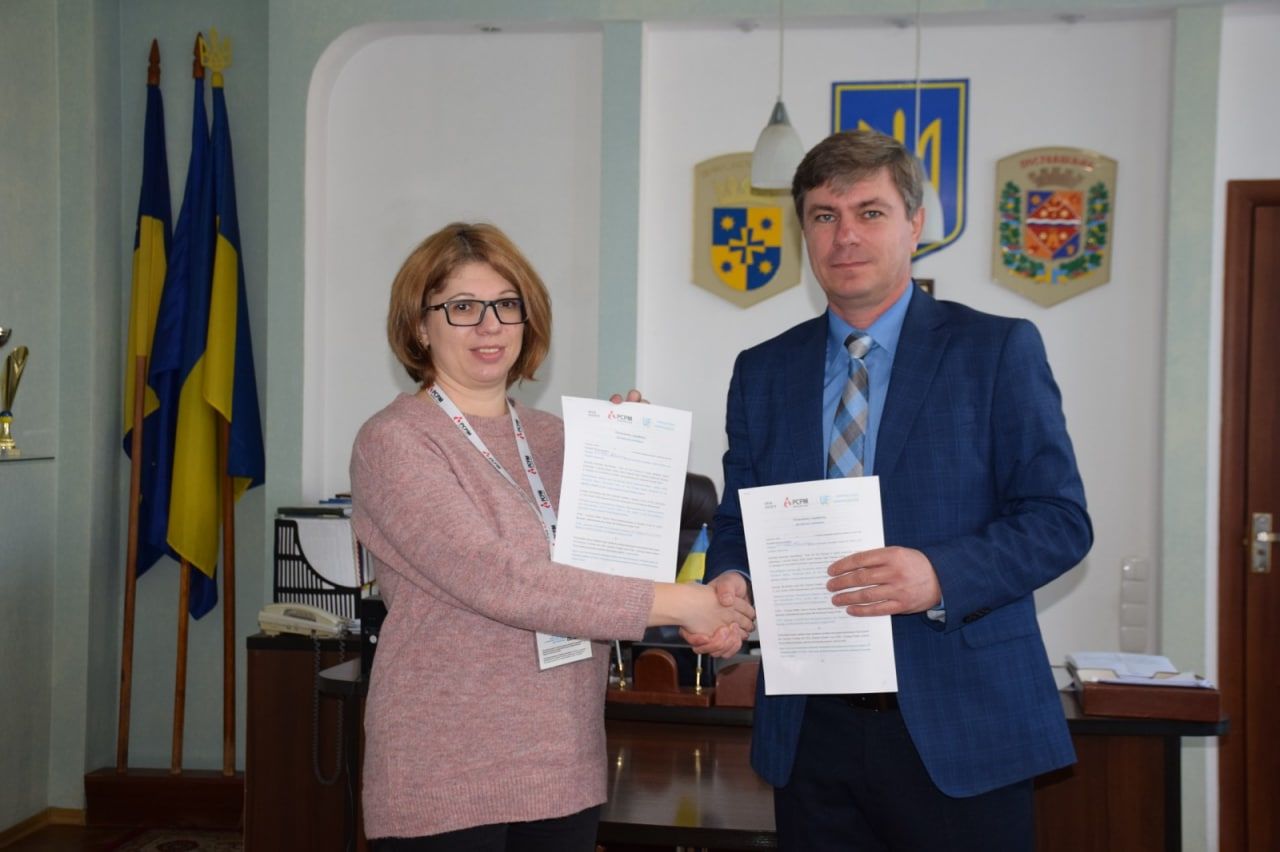
The Polish Center for International Aid has broad experience in coordinating similar projects in Poland. The Foundation has employed approximately 1200 Ukrainian refugees, with 850 working as teachers’ assistants in Polish schools. Both the employees and the employers are satisfied. The program started in March, this year. ‘At the end of the previous school year, in June, some of the school principals had formed a proposal that the employed assistants from Ukraine will work full-time from September’ – explains Aleksandra Wojtaszek, the coordinator of the PCPM ‘Cash for Work’ project in Poland. Within the program’s framework, many refugees had the opportunity to find a job in cultural institutions in Warsaw. They found employment in theaters, neighborhood daycare centers, and community activity centers. ‘Institutional feedback is great. Everyone is satisfied because these people from Ukraine, first, got jobs, can earn money, and make a living. They also have a highly creative contribution to our Warsaw institutions functioning’ – assessed Marcin Jasinski the Old Town Cultural Center (SDK) director in Warsaw.

Anna Radecka is the ’Cash for Work’ program supervisor in Ukraine – ‘you can give away food supplies and assistance. The refugees are waiting for it and are deeply grateful for the support, but we can help more actively on a different level. We can give people jobs.’
‘They support local communities through daily work’ – she states. ‘The basis of this PCPM program in cooperation with local governments. We talk to them directly, ask what kind of workers they need, and sign appropriate agreements for clear expectations. These are often simple jobs, not requiring high qualifications, nonetheless, for which the local government does not have funds. Importantly, the salary is similar to that received for such work under normal conditions’ – she added.
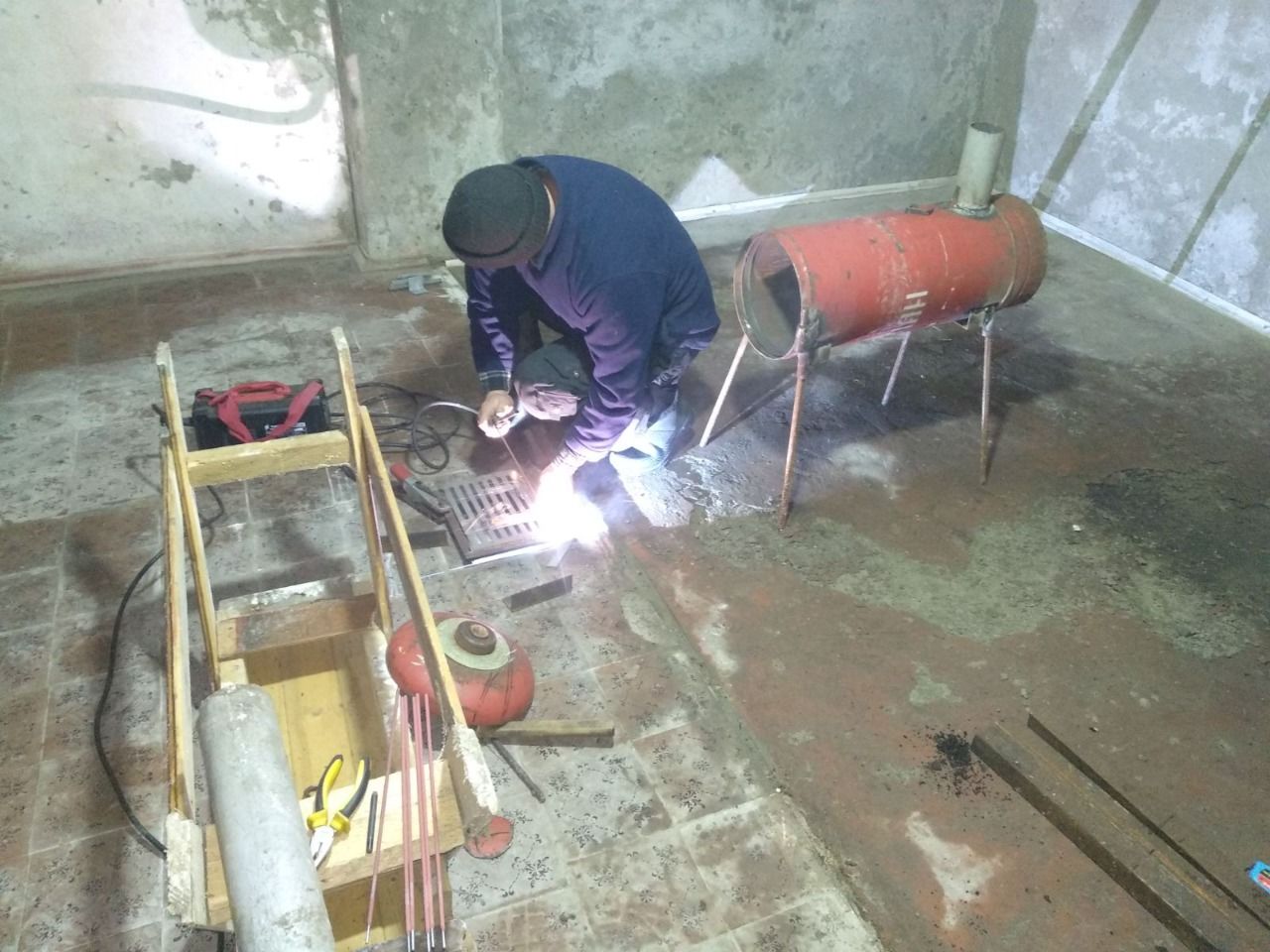
It is about $200 per month – slightly more than the Ukrainian minimum wage. ‘The program gives these people the motivation and a start for building their resources anew’ – Kulpinski commented. As he points out, the program is often a support, not a primary source of income.
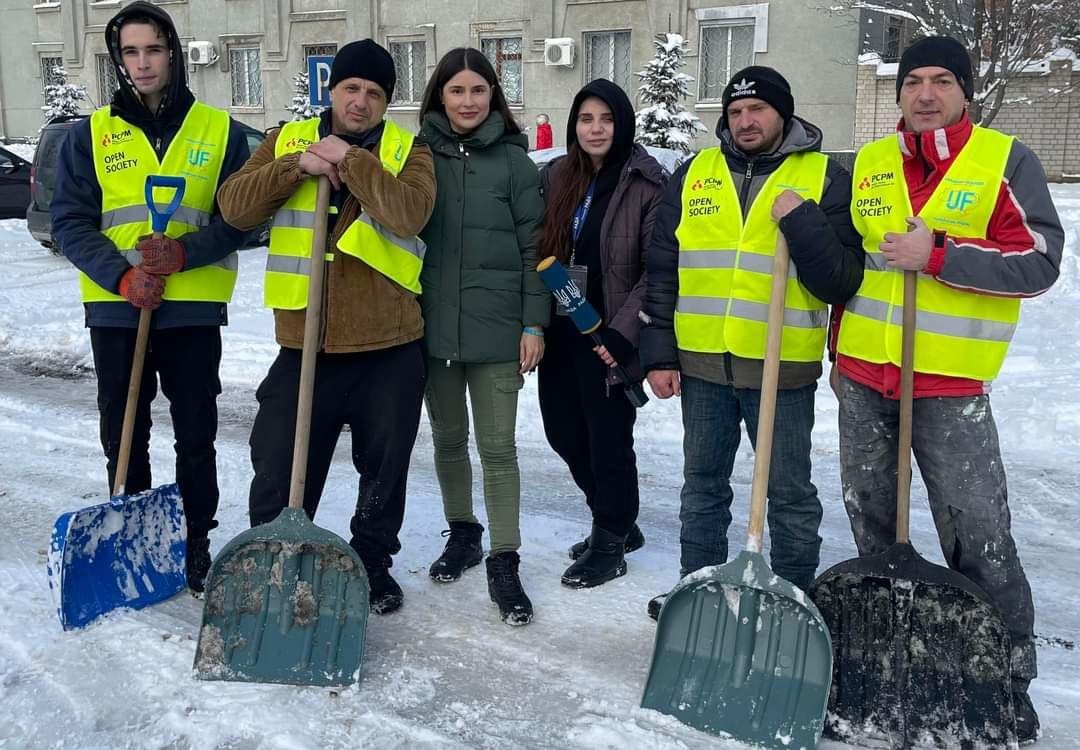
‘These are not always full-time jobs. The employees are in a task-based mode. Now, as it is this cold, they work 3-4 hours per day’ – he explained. ‘Besides, everyone will still find room for further development or a second job’ – he added.
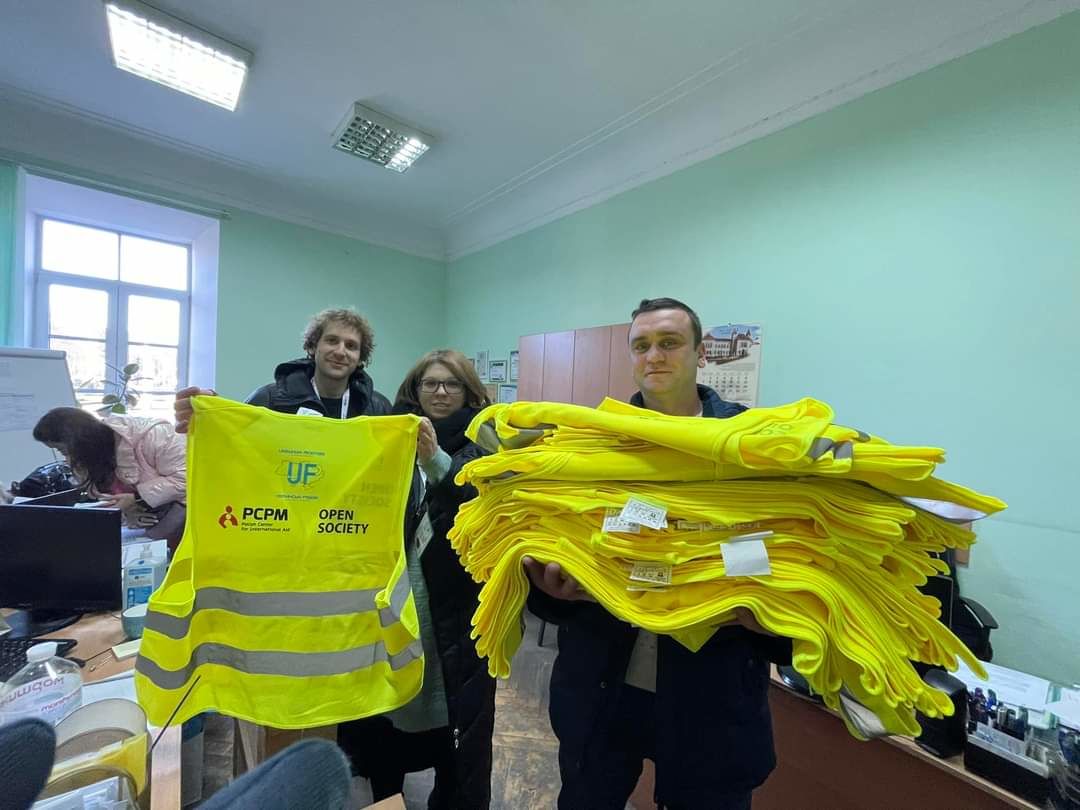
The Polish Center for International Aid Foundation runs the ‘Cash for Work’ program in Ukraine in cooperation with the Open Society and local partner Ukrainian Frontiers. Apart from Poltava, local governments cooperate with the organization, including Tsarychanka, Svitlovodsk, Kremenchuk, Novi Sanzhary, Kobeliaki, Hradysk, or Biliki in the Kharkiv, Poltava, Dnipro, and Kirovohrad regions.
Writen by: Stanisław Ajewski (PCPM)